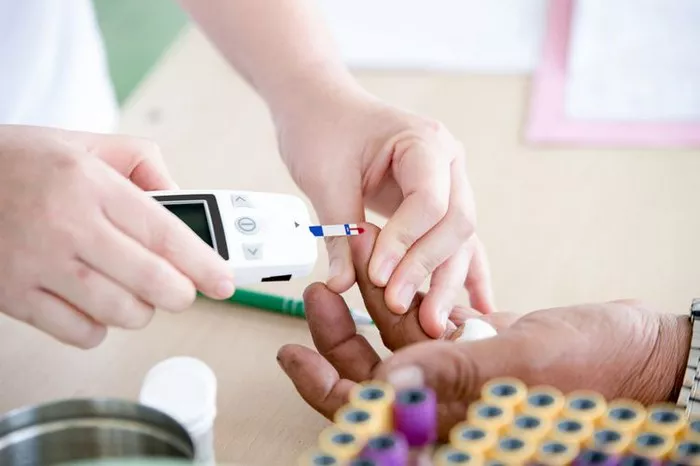Gestational diabetes is a condition that affects pregnant women, typically developing around the 24th to 28th week of pregnancy. It occurs when the body cannot produce enough insulin or use it effectively to regulate blood sugar levels during pregnancy. If left uncontrolled, gestational diabetes can lead to various complications for both the mother and the fetus, such as macrosomia (a large baby), preeclampsia, and an increased risk of cesarean section. However, there are several strategies and interventions that can help manage gestational diabetes and minimize its potential negative impacts. These include lifestyle modifications, dietary adjustments, regular physical activity, and in some cases, medical treatment.
Dietary Management
A well-planned diet is a cornerstone in the management of gestational diabetes. The diet should focus on maintaining stable blood sugar levels while providing the necessary nutrients for the mother and the growing fetus. Firstly, controlling carbohydrate intake is crucial. Complex carbohydrates, such as whole grains, brown rice, and whole wheat bread, are preferred over simple carbohydrates like white bread and sugary cereals. This is because complex carbohydrates are digested more slowly, resulting in a more gradual rise in blood sugar levels. Secondly, portion control is essential. Eating smaller, more frequent meals throughout the day can help prevent large spikes in blood sugar. For example, instead of three large meals, having five or six smaller ones can keep the body’s glucose metabolism more balanced. Additionally, increasing the intake of dietary fiber from sources like fruits, vegetables, and legumes can also improve blood sugar control. Fiber slows down the absorption of glucose, thereby reducing its immediate impact on blood sugar levels.
Regular Physical Activity
Engaging in regular physical activity is highly beneficial for pregnant women with gestational diabetes. Moderate exercise can enhance insulin sensitivity, which means the body is better able to use the insulin it produces. Walking is a popular and safe form of exercise during pregnancy. Pregnant women can aim to walk for at least 30 minutes a day, preferably after meals. Swimming is another excellent option as it provides a full-body workout while reducing the impact on joints due to the buoyancy of water. Yoga, specifically prenatal yoga, can also be helpful. It not only helps with physical conditioning but also promotes relaxation, which is important as stress can affect blood sugar levels. However, it is essential that pregnant women consult their healthcare providers before starting any new exercise regimen to ensure it is safe for both them and their babies. The healthcare provider can provide guidance on the appropriate intensity and type of exercise based on the individual’s pregnancy stage and overall health.
Blood Sugar Monitoring
Regular monitoring of blood sugar levels is a vital part of managing gestational diabetes. Pregnant women are usually required to check their blood sugar at specific times, such as fasting in the morning and one or two hours after meals. Self-monitoring allows them to understand how different foods and activities affect their blood sugar. For example, if a particular meal causes a significant increase in blood sugar, they can make adjustments to their diet or activity level. The results of blood sugar monitoring are shared with healthcare providers, who can then make more informed decisions about the management plan. If the blood sugar levels are consistently too high or too low, the doctor may need to adjust the treatment approach, such as modifying the diet, increasing physical activity, or considering the use of medication.
Medication and Insulin Therapy
In some cases, lifestyle modifications and dietary and exercise changes alone may not be sufficient to control blood sugar levels in gestational diabetes. In such situations, medication or insulin therapy may be necessary. Oral medications are sometimes prescribed, but insulin is often the preferred treatment option during pregnancy. Insulin is a hormone that helps regulate blood sugar levels. Healthcare providers will carefully calculate the appropriate dose of insulin based on the woman’s blood sugar levels, body weight, and stage of pregnancy. Pregnant women who require insulin therapy need to be trained on how to administer the insulin injections properly. They also need to closely monitor their blood sugar levels to ensure the insulin is effectively controlling their diabetes and to detect any potential hypoglycemic episodes, which can be dangerous for both the mother and the fetus.
Stress Management
Stress can have a significant impact on blood sugar levels, so effective stress management is an important aspect of dealing with gestational diabetes. Pregnant women can practice relaxation techniques such as deep breathing exercises. Taking slow, deep breaths can help calm the body and reduce stress hormones that may otherwise cause blood sugar to rise. Meditation is also beneficial. Spending a few minutes each day in quiet meditation can promote a sense of inner peace and stability. Another way to manage stress is through engaging in hobbies or activities that the woman enjoys, such as reading, painting, or listening to music. Additionally, having a good support system, including family and friends, can provide emotional support and help 减轻压力. When a pregnant woman feels supported and less stressed, it is more likely that her blood sugar levels will be better controlled.
Education and Support
Education about gestational diabetes is crucial for pregnant women. They need to understand the condition, its potential risks, and how to manage it effectively. Healthcare providers play a key role in providing this education. They can offer classes or individual counseling sessions to teach women about proper diet, exercise, blood sugar monitoring, and the importance of adhering to the management plan. Support groups can also be extremely helpful. These groups allow pregnant women with gestational diabetes to connect with others who are going through the same experience. They can share tips, concerns, and successes, which can boost morale and provide a sense of community. Online resources and mobile applications are also available to provide information and tools for managing gestational diabetes, such as tracking blood sugar levels, recording meals, and setting reminders for exercise and doctor appointments.



























